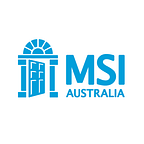Sexual and reproductive healthcare is key to violence prevention
Today is the International Day For The Elimination Of Violence Against Women. In recognition of this, Marie Stopes Australia has launched the second edition of Hidden Forces: a white paper on reproductive coercion in Australia.
Reproductive coercion is behaviour that interferes with the autonomy of a person to make decisions about their reproductive health and is a form of violence. It includes:
- sabotage of another person’s contraception
- pressuring another person into pregnancy
- controlling the outcome of another person’s pregnancy
- forcing or coercing another person into sterilisation; and
- any other behaviour that interferes with the autonomy of a person to make decisions about their sexual and reproductive health.
Reproductive coercion can be experienced by trans and non-binary people, and people of all genders. Women experience intimate partner violence at higher rates than men, including reproductive coercion.
We are yet to have a national prevalence measure to understand the rate of coercion more broadly. The National Women’s Health Strategy (2020–2030) has listed a reduction in the prevalence of reproductive coercion as a key measure of success. Australia is currently writing the Second National Plan to Reduce Violence Against Women and their Children. It is critical that reproductive coercion be included in the second National Plan.
Women attempting to access abortion can be at higher risk of violence than the general population. From our counselling data, up to one in three women can experience coercion when considering their pregnancy choices. That figure is higher for Aboriginal and Torres Strait Islander women, with up to one in two experiencing reproductive coercion.
Contraception and abortion care are essential healthcare. For those seeking abortion who cannot access it, a child or an additional child, to a violent partner creates yet another link with lifelong risk and other implications. Sexual and reproductive healthcare not only prevents the risk of harm; it is a point of early intervention and prevention.
Informed consent and person-centred care are central to our service provision. We use sensitive enquiry to identify points in a patient journey where we can enquire about harm, including coercion, abuse and violence. The way that questions are phrased, asked and expanded will be responsive to the unique social, cultural and emotional needs of the person in front of us on the day.
People experiencing intimate partner violence access healthcare more often than those who do not. Nurses and midwives are trained and experienced in building rapport and therapeutic relationships and have more time to spend in a variety of healthcare settings than doctors. GP consultations operate within limited timeframes, while nurses and midwives can offer additional time and space for trauma-informed holistic care.
Nurses are consistently regarded as the most trusted profession in Australia. In emergency rooms, general practices, community health centres, maternal and child health centres and hospital wards across the country, nurses are well placed to identify, engage and support people at risk. Yet, we do not have the appropriate Medicare Benefits Scheme item numbers to be able to resource nurse and midwifery sexual and reproductive healthcare.
The barrier is not knowledge; it is resources — we need a healthcare system that can respond. Australia must include reproductive coercion in the Second National Plan to Reduce Violence Against Women and their Children.
Cate Grindlay is the Executive Director of Nursing and Clinical Services at Marie Stopes Australia. Cate is an experienced nurse, midwife and clinical manager. She is also a Victorian Public Hospital Board Director, and Public Hospital Clinical Governance, Quality & Safety Committee Chair.
Cate first became passionate about sexual and reproductive healthcare when she trained as a midwife in England. The cities of Liverpool, Manchester and Birmingham saw large numbers of girls and women arrive every day by plane and by ferry to access the abortion and contraception care they could not receive in at home in Ireland. Due to costs involved, they often arrived alone & afraid but were able to access the care and support they needed to make the choices they wanted. Those who could not come to the UK for care fared far worse.
When Cate returned to Australia, she was incredibly disappointed to learn just how little progress had been made and how hard it was to access sexual and reproductive healthcare; especially for people living in rural and remote areas, and for those experiencing intimate partner violence. Abortion remains largely inaccessible in Australia. Non-profit women’s health centres, community centres and violence against women support agencies fill a health funding gap in abortion care. When someone who wants to access abortion and cannot afford out of pocket costs, our communities step in with crowdfunded fundraising measures and by dipping into organisational reserves. These non-profit services cannot afford to continue subsidising healthcare access.
If you or anyone you know needs support, you can contact the National Sexual Assault, Domestic and Family Violence Counselling Service on 1800RESPECT (1800 737 732).
